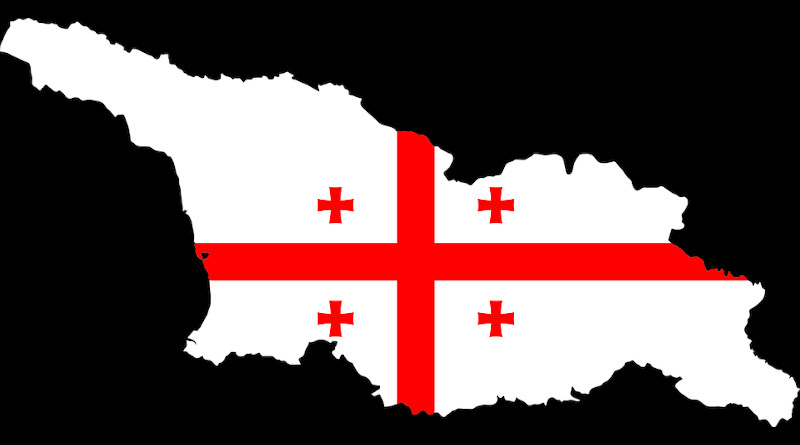A New Democracy Is Struggling – OpEd
By Ellen Saakashvili and Tom G. Palmer*
An autocratic police state strives to crush all opposition, both large and small. We’re seeing it emerge in Georgia, a struggling post-Soviet democracy. In February we watched a live-streamed police raid, with security forces smashing their way into the offices of the country’s largest opposition party and dragging out the opposition leader, Nika Melia, on orders from a shadowy oligarch, Bidzin Ivanishvili. The previous prime minister, Giorgi Gakharia, had refused to carry out the order and had to resign; his successor Irakli Garibashvili followed orders. This past weekend, recordings were released of Ivanishvili’s rapper son Bera instructing Garibashvili to punish a high school student for insulting the Ivanishvili family on his social media accounts. The oligarch’s son also tasked the Head of the Special State Protection Service, Anzor Chubinidze, with punishing a teenager for insulting his father. Since the airing, numerous victims have stepped forward to claim that they were threatened or assaulted by groups following Bera’s orders. The model the Kremlin imposed on Chechnya is being rolled out in neighboring Georgia, a country that has fought for its democracy.
One may be tempted to shrug and look away. That would be a mistake, for doing so puts democracy everywhere at risk. Autocracy and brutality are a bit like viruses; once one country catches it, it’s easier for others to catch it, too.
Bidzina Ivanishvili, a man who accumulated his fortune in a swirl of Kremlin corruption, is, in effect, following Vladimir Putin’s lead and is “privatizing” the Georgian state for his personal gain. The current Prime Minister used to be a board member of the supervisory council at a bank owned by Ivanishvili and — of course! — director of the recording company that issued Bera Ivanishvili’s rap songs. Georgia is now ruled by a small group of people whose only accountability is to a billionaire who enriched himself in Russia as the largest private shareholder of the state-owned gas giant Gazprom. His dentist is now the Minister of Health; his previous prime minister was his personal banker; even his bodyguard is now a cabinet member. “Georgian Dream,” the now-ruling party that he financed, was founded on the fantasy that since Ivanishvili was rich — his net worth is equivalent to 30% of Georgia’s GDP, if he were elected, the country would also become rich. Since taking power, he has stepped back to control events from the shadows. He now controls all branches of the Georgian government and has paralyzed the country’s development.
Georgian Dream has turned Georgia into a classic example of a captured state, in which narrow private interests capture the state and control public institutions solely for their own benefit. His eyes are turned, naturally, to the neighboring captured state where he amassed his fortune: Russia. That’s a problem politically, as Georgia was colonized for decades under the Russian Empire and later the Soviet Union. Their independence is held sacred by Georgians. Ivanishvili and his henchmen must tread carefully to avoid the appearance of an open alliance with the Kremlin. There is no doubt, however, that the Kremlin is eagerly hoping for the dissolution of democracy in its former colony.
Georgian political intrigues are full of complexities, as are the political conflicts in other countries. What is not complex, however, is the fact that the country is moving toward a one-party state under the control of one man. Most people still yearn for the freedom and the openness that was promised and substantially achieved under previous governments. The legal and economic reforms pioneered by the late Kakha Bendukidze reduced graft, shakedowns, corruption, and public incompetence and moved Georgia to the fore of reforming new democracies.
The previous government was far from perfect, but the progress from violence-ridden failed state to modern liberal democracy was impressive, so much so that the government led by the party whose leader was just arrested was defeated in a free and open election. That may sound like a defeat, pure and simple, but it was in fact a testament to the success of that government’s reforms, for it was the first peaceful democratic transfer of power in the country’s history. The current government is trying to ensure that that doesn’t happen again and that Georgia’s democracy is strangled and buried forever.
Not everyone in government circles is happy about this turn, as evidenced by the public resignation of the previous Prime Minister, who refused to carry out Ivanishvili’s orders, and his replacement by one who would carry out those orders under the guise of “law.” The current government has embraced the view of the Field Marshall and two-time President of Peru, once by coup d’etat and once by election, Óscar Benavides, who famously proclaimed, “For my friends everything, for my enemies the law.” It is a perversion of law to arrest opposition figures and shut down democracy, but one we are seeing more commonly. When the law is twisted to advance the interests of one party or even of one person, it ceases to be law and becomes mere force.
Those of us in still free and democratic societies who wish to preserve our own liberty and democracy should stand against backsliding toward dictatorship. Free media, businesses, and civil society organizations should raise their voices and democratic governments should use diplomatic means, possibly including targeted sanctions on Ivanishvili and his cronies, to call on the current government to release the leader of the opposition and on all parties to attempt to resolve their differences by the rule of law. It is time to turn the tide once again in favor of liberal democracy and against autocratic force.
*Ellen Saakashvili is a native of Tbilisi, Georgia and an associate at Atlas Network. Tom G. Palmer is executive vice president for international programs at Atlas Network and a senior fellow at the Cato Institute.

